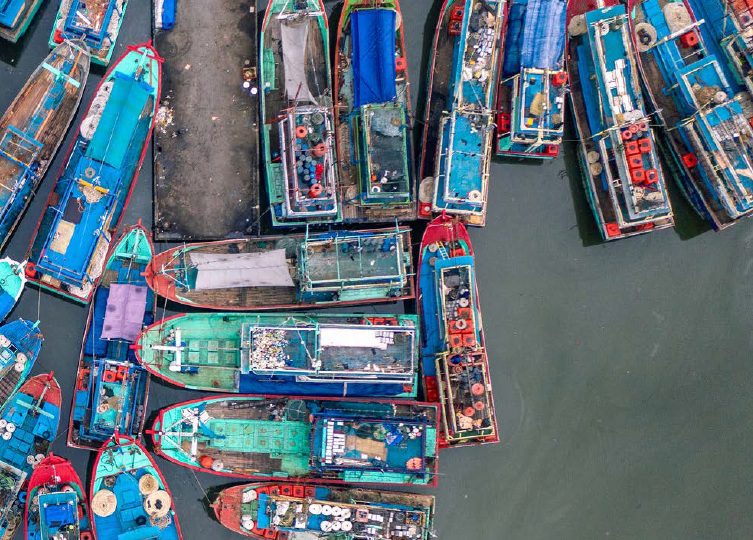Report | June 5, 2019
Achieving Transparency and Combating IUU fishing in RFMOs
Reinforcing the EU’s multilateral actions to promote best practices
The environmental and economic viability of global fisheries remains in crisis, with many fish populations managed within Regional Fisheries Management Organisations (RFMOs) Convention areas overfished and at times at risk of collapsing. Illegal, unreported and unregulated (IUU) fishing significantly contributes to this problem. Strengthening fisheries governance is urgently required to deliver the United Nations Sustainable Development Goal (SDG) agenda, especially target 14.4 to “effectively regulate harvesting, and end overfishing, illegal, unreported and unregulated (IUU) fishing and destructive fishing practices (…)”1, which the European Union (EU) and other RFMO Contracting Parties have committed to do by 2020.
IUU fishing remains one of the biggest threats to the sustainable management of marine resources. It is estimated that up to one in five wild caught fish is fished illegally, the product of an illicit global business worth billions each year2, corresponding to at least 15% of the world’s catches3. In their perpetual quest of ever higher profits, IUU operators move from one region to another where regulations and the means used to enforce the law are weaker. IUU fishing results in significant social, economic and environmental damage4. It undermines efforts by countries, fishermen and stakeholders worldwide to sustainably and equitably manage ocean resources. Its negative impacts are pronounced and varied: it adds pressure to already overexploited fish stocks, while simultaneously compromising efforts to rebuild them based on scientific advice; and it also distorts global fish markets and prices, leaving legal fishermen disadvantaged. In addition, IUU fishing often occurs alongside other crimes such as human rights abuses, drugs and weapons trafficking, tax fraud and corruption5.
Contracting parties and cooperating non contracting parties (referred to hereafter as “CPCs”) of RFMOs are uniquely positioned to promote and establish transparency and anti-IUU measures across the globe, however progress has been very slow6. Many of the world’s most valuable fish stocks, which are the most heavily plagued by IUU fishing, fall under the purview of RFMOs. In line with the adoption of the United Nations Convention on the Law of the Sea (UNCLOS) and the United Nations Convention on the Law of the Sea of 10 December 1982 relating to the Conservation and Management of Straddling Fish Stocks and Highly Migratory Fish Stocks (UNFSA), RFMOs’ CPCs must ensure the long-term conservation and sustainable exploitation of highly migratory and straddling fish stocks. In this regard, transparency, accountability and an effective and deterrent monitoring and sanctioning system are the most effective tools to tackle IUU fishing.
As a major global fishing power and the world’s largest trader of fishery and aquaculture products in terms of value in 20167, with an informed and engaged consumer base, the EU should and does show leadership in increasing transparency and countering IUU fishing. The EU accounts for around 5% of total fisheries worldwide8, ranking fourth after the three main Asian producers of China, Indonesia and India. EU fishing activity in all fishing areas outside EU waters and in areas beyond national jurisdiction (ABNJ) (see figure 1 for the global footprint of the EU’s external dimension) occurs mainly in areas under the competence of RFMOs. EU fishing activities within RFMOs account for roughly 18% of the EU’s total landed weight of seafood catches (839 thousand tonnes) and 19% of the total value (EUR 1.4 billion)9.
Download the factsheet to read the full report.


